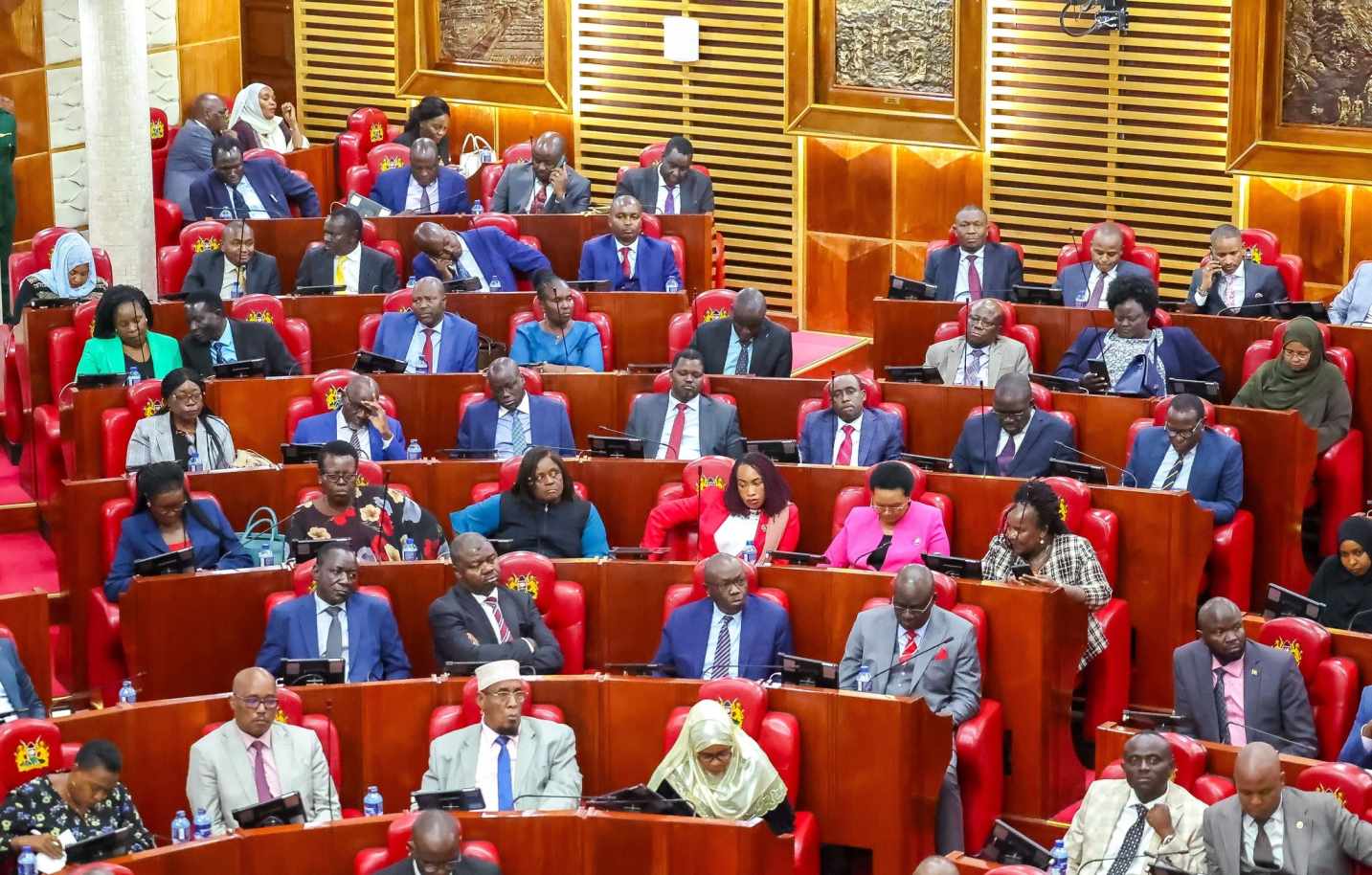Tensions between county governments and Parliament are rising after MPs endorsed a minimal allocation from the Road Maintenance Levy Fund (RMLF) for devolved units.
Governors had demanded at least 15 per cent of the multibillion-shilling fund, but the Committee on Transport and Infrastructure has recommended a mere five per cent, setting up a potential political showdown and renewed legal challenges.
The committee, led by Ndia MP George Kariuki, detailed its position in the report on the Kenya Roads (Amendment) (No 3) Bill, 2025, presented to the National Assembly on Tuesday. The legislation was introduced to comply with a High Court ruling that deemed the current road funding and classification system unconstitutional for sidelining counties.
In its submissions, the Council of Governors stressed that the proposed five per cent allocation was too small to meet county needs.
Counties manage over 81 per cent of Kenya’s road network, spanning more than 121,000 kilometres, yet the levy collected on every litre of fuel would barely support maintenance.
“The allocation to county governments should not be less than 15 per cent of the total collections from the levy,” the CoG stated, citing constitutional principles of fair revenue distribution.
The Institute of Engineers of Kenya backed the governors’ argument, warning that the current proposal would accelerate the deterioration of county roads.
The engineers suggested a nine per cent allocation to better address the maintenance demands. “County roads form more than 121,000km out of 161,000km nationally, which is around 81 per cent of the roads.
An allocation of five per cent will not have much impact on the maintenance of these roads,” their submission noted.
Despite these concerns, the parliamentary committee held firm. It argued that five per cent was adequate for counties to manage their roads if the funds were spent responsibly. The MPs insisted that the Kenya Roads Board retain oversight to guarantee accountability, a point that governors say undermines county independence.
The CoG had proposed that KRB’s role be limited to financial supervision while counties or the Senate handle technical oversight. The committee, however, rejected this, asserting that the board is legally mandated to oversee the entire road network and ensure the proper use of the fund.
The Bill also grants the Cabinet Secretary for Transport the authority to classify and reclassify all public roads, including county roads—a move governors say centralizes power and contradicts Article 186 and the Fourth Schedule.
The CoG suggested a joint classification process involving both national and county governments to protect devolution.
This latest disagreement exposes ongoing friction between national and county governments over road management, revenue sharing, and control over infrastructure, leaving the prospect of prolonged debates and legal disputes looming large.
